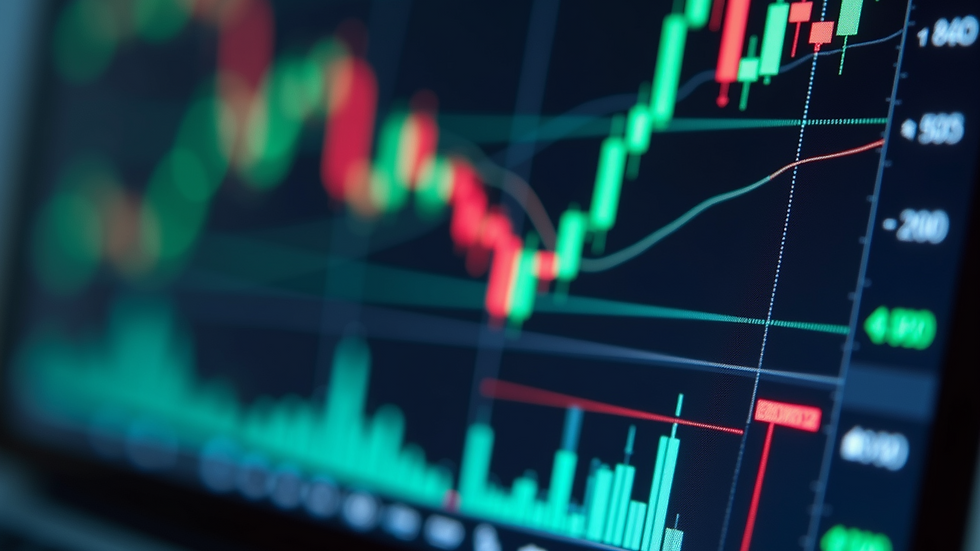SEC Lawsuits Shake Crypto Industry, Binance and Coinbase Under Scrutiny.
- forex368

- Jun 6, 2023
- 3 min read
In a major development, two of the largest cryptocurrency platforms, Binance and Coinbase, are facing regulatory scrutiny from the US Securities and Exchange Commission (SEC). The lawsuits filed against these platforms have expanded the list of digital tokens considered unregistered securities, with the SEC now covering over $115 billion worth of crypto assets.
The SEC's lawsuit against Binance Holdings Ltd., filed on Monday, identified a dozen coins that fall under its purview as unregistered securities. This designation imposes strict investor protection rules and could potentially make trading these tokens more challenging if exchanges are hesitant to list them due to fear of non-compliance with the SEC.
Tokens such as Binance's BNB, stablecoin BUSD, Cardano's ADA, Solana's SOL, Polygon's MATIC, Filecoin's FIL, and Algorand's ALGO were among those mentioned in the lawsuit. When combined with previously targeted tokens like XRP, the SEC has now classified over $115 billion worth of coins as unregistered securities.
SEC Chair Gary Gensler has consistently emphasized that most tokens are subject to the agency's investor-protection laws and has urged trading platforms to register with the regulator. However, the labeling of specific tokens represents a stricter approach. This year, US officials have increased their crackdown on digital assets following the 2022 market downturn and a series of notable incidents, including the bankruptcy of the FTX exchange.
The immediate implications of the SEC action are expected to impact Coinbase, Kraken, and other US-based exchanges, which now face the decision of whether to delist the tokens categorized as securities. Additionally, US market makers may have to cease trading certain tokens listed as securities. Nevertheless, the long-term impact on token prices is uncertain as they continue to be traded on offshore exchanges.
Since the SEC's complaint, Filecoin has experienced a 10% drop, while BNB has declined by approximately 9%. Other mentioned assets have also witnessed losses. In broader digital-asset markets, both Bitcoin and the top 100 coins have seen declines of around 6%.
Coinbase and Kraken have responded to the SEC action with caution. Coinbase, pending a final court decision, has indicated that it may not delist tokens deemed as securities by the SEC. Kraken, on the other hand, stated that it does not list securities and will continue to monitor the case closely.
While Bitcoin, the largest cryptocurrency, is not considered a security under the SEC's rules, the status of Ether, the second-largest digital token, remains less definitive.
The overall value of the cryptocurrency market currently stands at approximately $1.1 trillion, significantly lower than its peak of over $3 trillion during the pandemic-era boom.
The SEC's lawsuit against Binance accuses the platform and its CEO, Changpeng Zhao, of mishandling customer funds, misleading investors and regulators, and violating securities regulations. Binance has strongly asserted its intention to vigorously defend its platform against the SEC's allegations.
A crucial ongoing SEC case involves a 2020 lawsuit against Ripple Labs Inc. The complaint alleges that Ripple failed to register XRP as a security. Ripple's CEO, Brad Garlinghouse, has stated that he expects a court ruling in the coming weeks, which could have significant implications for US crypto regulations.
The recent SEC lawsuit against Coinbase further exacerbates the regulatory landscape in the crypto industry. The SEC alleges that Coinbase, the largest US crypto platform, violated its rules by allowing the trading of numerous crypto tokens that were actually unregistered securities. As a result, Coinbase's stock fell by 15% following the news.
SEC Chair Gary Gensler has stated that Coinbase, despite being subject to securities laws, unlawfully offered exchange, broker-dealer, and
clearinghouse functions. The SEC seeks an order that would compel Coinbase to comply with securities laws and surrender any ill-gotten gains.
The SEC has also accused Coinbase of breaking its rules with its staking service, a product that allows customers to earn returns by lending their crypto tokens for blockchain transactions.
As these SEC lawsuits unfold, the crypto industry is experiencing a shake-up, affecting coin prices and investor sentiment. The broader implications of these actions remain uncertain. It remains to be seen whether this crackdown signifies increased regulation and legitimacy being brought to the crypto sphere or if it is simply targeting unregulated players.




